Celery powder is not a traditional Chinese cooking ingredient but has gained popularity in modern Chinese-inspired cuisine for its concentrated umami and moisture-free properties. Unlike Western applications where it's used as a standalone flavoring, contemporary Chinese chefs utilize it to enhance broths, sauces, and fillings while maintaining the delicate balance essential to authentic Chinese flavors. Here's how to effectively incorporate this modern ingredient into Chinese-style cooking without compromising traditional techniques.
Understanding Celery Powder's Role in Contemporary Chinese Cooking
While classical Chinese cuisine never featured celery powder (due to its modern processing methods), this ingredient has become valuable in contemporary Chinese kitchens for specific applications where fresh celery's moisture content would disrupt traditional techniques. Modern chefs use it primarily as a precision tool for umami enhancement in broths, sauces, and fillings where moisture control is critical.
For home cooks seeking authentic Chinese flavors, celery powder solves three key challenges: eliminating unwanted water from fresh celery in stir-fries, intensifying aromatic profiles in braising liquids, and providing consistent flavor in spice blends. This guide reveals how to integrate it thoughtfully while respecting foundational Chinese culinary principles.
What Exactly Is Celery Powder and Why It Works for Chinese Cooking
Celery powder is created by dehydrating and grinding celery stalks into a fine concentrate. Its value in Chinese-inspired cooking comes from what it eliminates: moisture. Traditional Chinese techniques like stir-frying require high heat and dry conditions—fresh celery's 95% water content causes steaming instead of searing. The powder delivers pure celery essence without compromising texture.
When selecting products for Chinese cooking applications, prioritize single-ingredient formulations without maltodextrin or anti-caking agents. Pure celery powder aligns with Chinese cooking's emphasis on clean, unadulterated ingredient profiles. Commercial products offer consistent particle size crucial for even distribution in spice rubs and marinades—something homemade versions often lack.
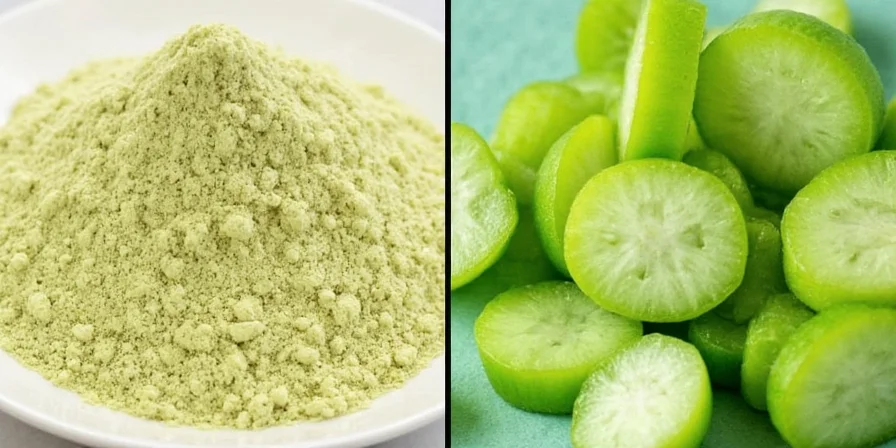
Celery Salt vs. Celery Powder – Critical Differences for Chinese Cuisine
| Feature | Celery Powder | Celery Salt |
|---|---|---|
| Main Ingredient | Dried ground celery | Mixture of salt + celery powder |
| Sodium Content | Negligible | High |
| Flavor Intensity | Earthy, herbal, slightly bitter | Salty + diluted celery flavor |
| Best For Chinese Cooking | Braises, dumpling fillings, low-sodium stir-fry sauces | Generally unsuitable (excess salt disrupts balance) |
| Moisture Impact | None (critical for texture control) | None but sodium disrupts flavor equilibrium |
In Chinese cuisine, celery powder's negligible sodium content proves essential. Traditional flavor balancing relies on precise salt control through soy sauce or fermented pastes—pre-salted ingredients like celery salt would disrupt this equilibrium. The powder's moisture-free nature also prevents steamed buns from becoming soggy and maintains proper searing in stir-fries.
7 Practical Uses of Celery Powder in Chinese-Style Dishes
- Perfect dumpling fillings: Add 1/4 teaspoon to pork or vegetable fillings for enhanced umami without moisture leakage during steaming—preserving wrapper integrity.
- Crystal-clear broths: Dissolve a pinch in wonton or hot-and-sour soups to deepen flavor without clouding the broth—critical for Cantonese presentations.
- Wok-seared stir-fries: Mix with light soy sauce and rice wine in a 1:5:3 ratio for sauces where fresh celery would release water and prevent proper caramelization.
- Vegetarian 'oyster' sauce: Blend with mushroom powder and fermented black beans for plant-based umami in Buddhist cuisine applications.
- Dry-pot seasonings: Combine with Sichuan peppercorn powder for Chengdu-style dry-pot marinades where fresh celery would cause steaming instead of dry-frying.
- Steamed fish enhancement: Dust lightly over fish before adding ginger-scallion oil for subtle herbal complexity without overpowering delicate flavors.
- Consistent spice rubs: Mix with five-spice powder for even coating on roasted meats, avoiding clumping from fresh celery's moisture.

Why Celery Powder Works for Authentic Chinese Flavor Balancing
Celery powder functions as a sodium-reduction tool in Chinese cuisine without sacrificing depth—a growing priority as kitchens adapt traditional recipes. Its natural glutamates enhance savory notes, allowing reduction of soy sauce by 15-20% while maintaining flavor complexity. This aligns with evolving Chinese dietary preferences toward lighter, health-conscious preparations.
Unlike fresh celery, the powder retains concentrated potassium through dehydration—valuable for maintaining broth clarity in refined dishes. The absence of water content also prevents texture degradation in steamed buns and dumplings, preserving the critical 'bite' valued in Shanghainese cuisine. For home cooks, it offers consistent flavor intensity batch-to-batch, solving the seasonal variability of fresh celery that challenges authentic replication of regional dishes.
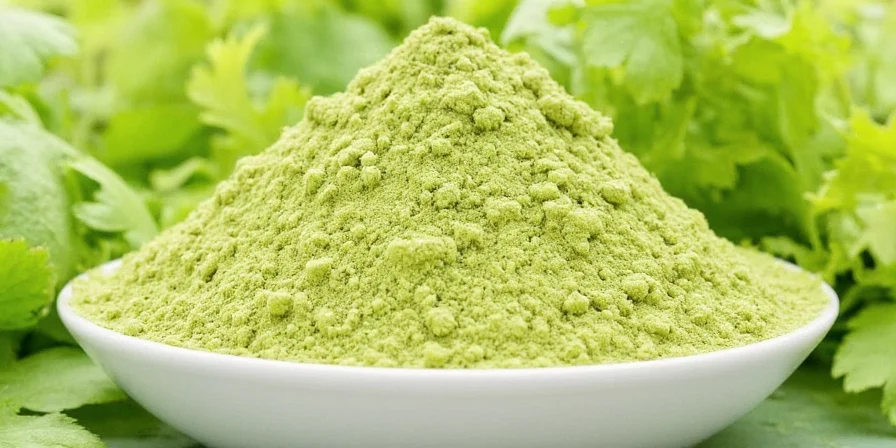
Buying and Storing Celery Powder for Chinese Cooking
Selecting Quality Powder:
- Choose pure celery powder with no additives—critical for authentic flavor layering in complex sauces
- Look for vibrant greenish-brown color; grayish hues indicate oxidation and diminished flavor compounds
- Source from specialty Asian grocers for varieties processed to retain more natural glutamates
Storage Best Practices:
- Store in airtight containers away from light to preserve aromatic compounds
- Refrigerate in humid climates to prevent moisture absorption
- Discard if aroma fades—flavor intensity directly impacts dish balance
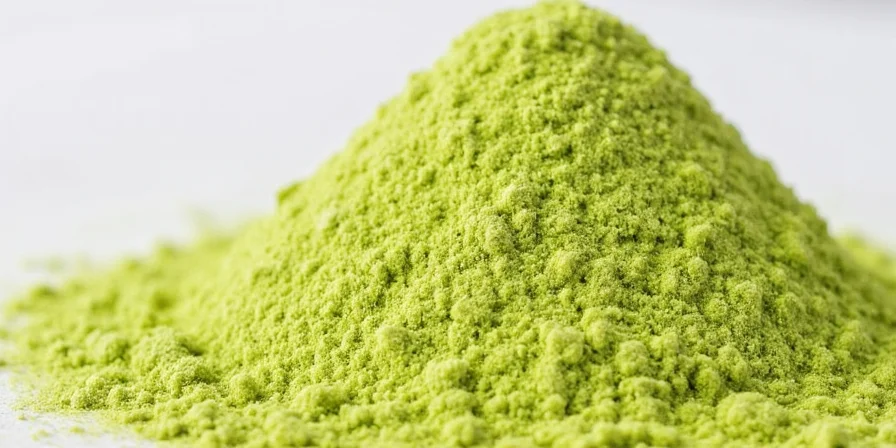
Modern Adaptations in Chinese Kitchens
Contemporary Chinese chefs employ celery powder to solve age-old texture challenges. In Sichuan dry-pot cooking, it replaces fresh celery to prevent steaming during high-heat searing—preserving the dish's signature 'wok hei' (breath of the wok). For Cantonese steamed fish, a light dusting enhances herbal notes without diluting the ginger-scallion oil infusion.
The powder's moisture-free nature revolutionizes dumpling preparation: traditional fresh celery releases water during steaming, causing wrappers to tear. Celery powder delivers consistent flavor while maintaining structural integrity. In Buddhist vegetarian cuisine, it combines with dried shiitake powder to mimic seafood umami in 'vegetarian oyster sauce'—a clever adaptation respecting religious dietary restrictions.
Most significantly, it enables authentic regional replication in non-native environments. Home cooks outside Asia often struggle with celery's seasonal variability; the powder provides reliable flavor intensity crucial for balancing the 'sweet-salty-sour-bitter-umami' framework of Chinese gastronomy.
Practical Integration for Home Cooks
Celery powder serves as a precision tool for achieving authentic Chinese culinary balance in modern kitchens. By eliminating moisture-related pitfalls of fresh celery while intensifying essential umami, it empowers home cooks to master techniques previously reserved for professional environments. The key is using it judiciously—not as a primary flavor but as a subtle enhancer that respects Chinese cooking's foundational principles: harmony, texture control, and layered flavor development.
For best results, start with small amounts (1/8-1/4 teaspoon per serving) and adjust based on your specific recipe needs. When properly integrated, this ingredient helps maintain the delicate balance that defines exceptional Chinese cuisine while solving common home cooking challenges.
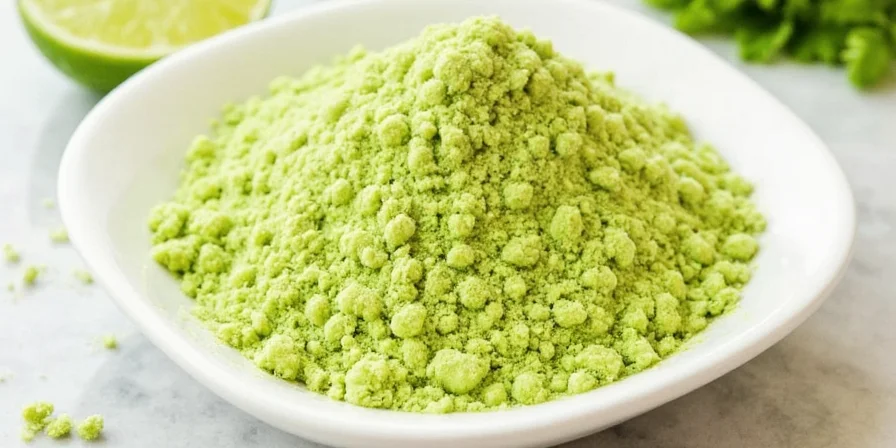
Frequently Asked Questions
Is celery powder traditionally used in Chinese cooking?
No, celery powder is a modern ingredient not found in historical Chinese recipes. Contemporary chefs use it as a practical solution for moisture control and umami enhancement in specific applications where fresh celery would compromise texture.
Can celery powder replace fresh celery in Chinese recipes?
It works well in sauces, braises, and fillings where moisture control is critical, but cannot replicate the textural crunch of fresh celery in dishes like Cantonese stir-fried celery with dried shrimp. Use 1/4 teaspoon powder per 1 cup of fresh celery stalks for flavor replacement.
Does celery powder alter Chinese dish colors?
When used appropriately (1/8-1/4 tsp per serving), it enhances natural hues without discoloration. Excessive amounts may impart a subtle greenish tint to clear broths—always dissolve in liquid first.
How does celery powder compare to Chinese celery seed?
Chinese celery seed (qin cai zi) has a stronger, more bitter profile used medicinally. Western celery powder offers milder, vegetal notes ideal for daily cooking. They are not interchangeable in traditional recipes.
Can I use celery powder in vegetarian Chinese dishes?
Absolutely. It's particularly valuable in Buddhist vegetarian cuisine to enhance umami in 'mock meat' dishes without animal products, often combined with dried mushroom powder.
Why does my celery powder clump in humid climates?
Humidity causes moisture absorption. Store in the refrigerator with a silica packet, and always measure with dry utensils to maintain powder consistency for precise seasoning.

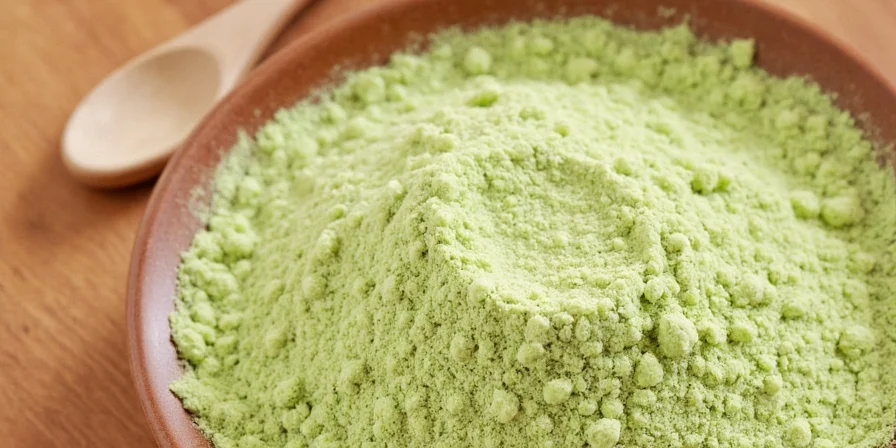









 浙公网安备
33010002000092号
浙公网安备
33010002000092号 浙B2-20120091-4
浙B2-20120091-4